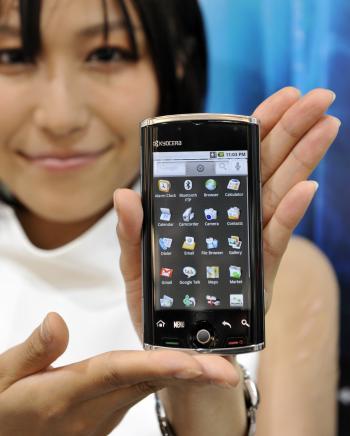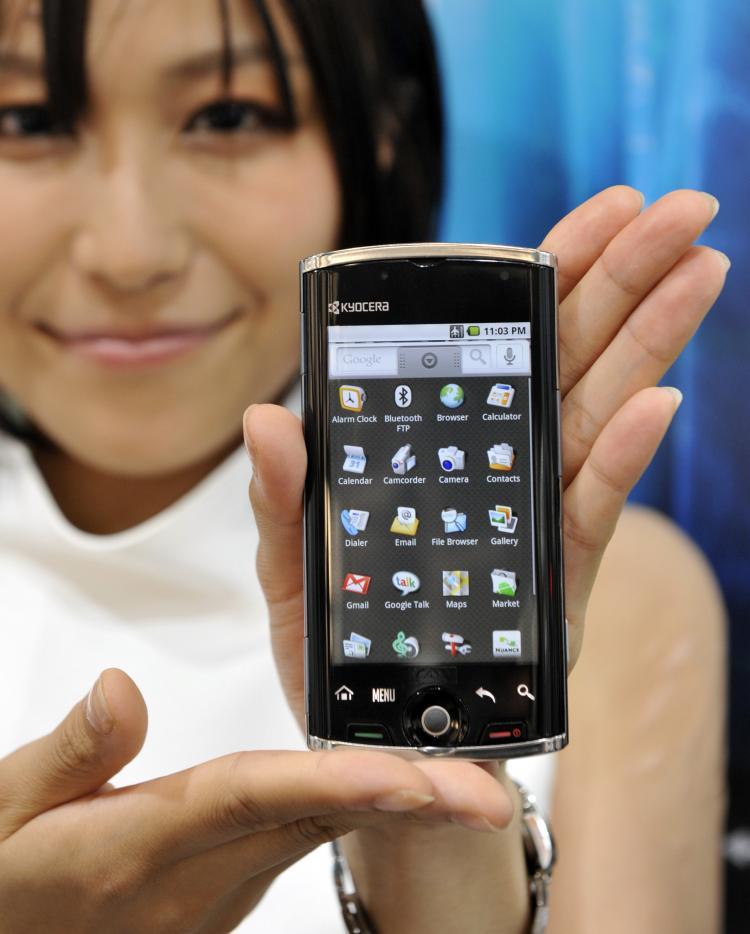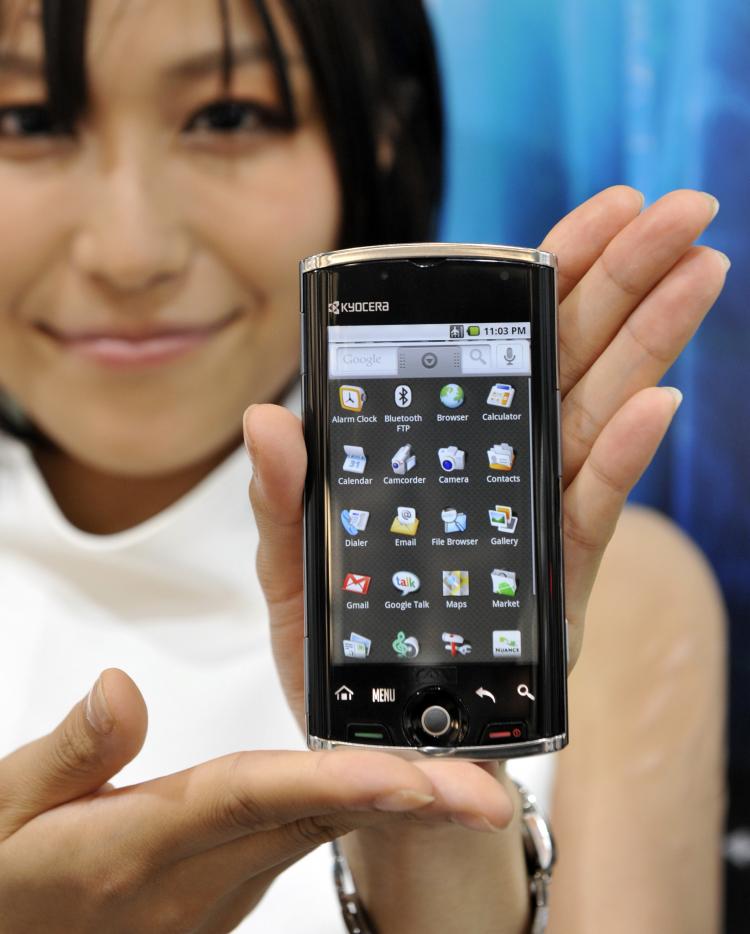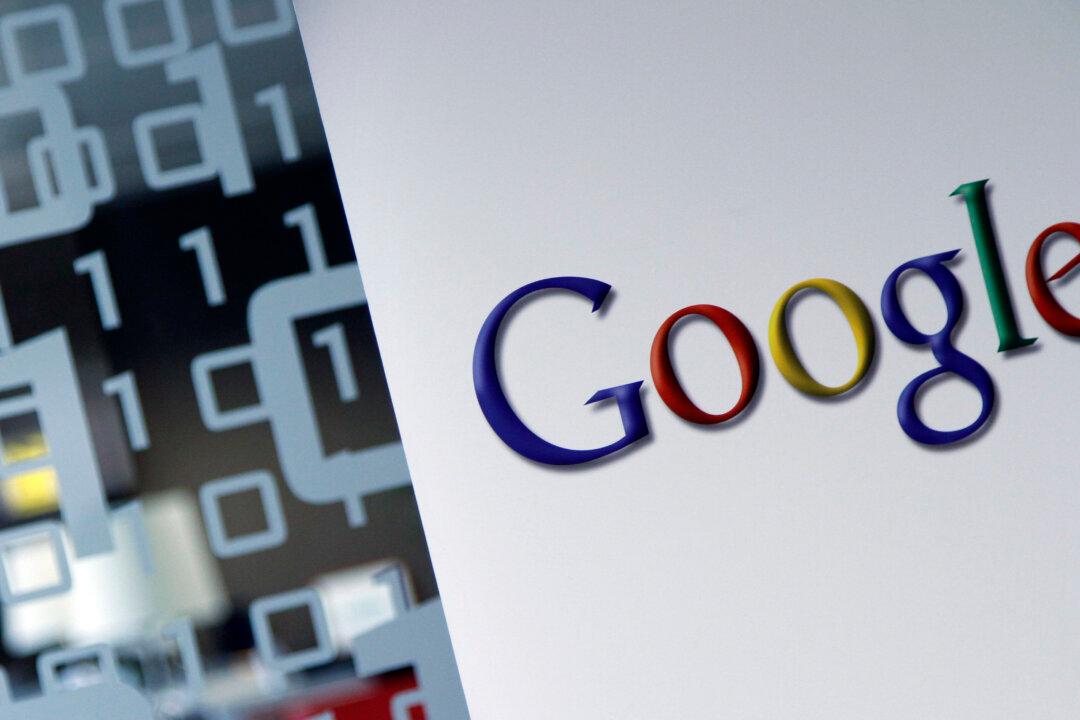Google’s Android operating system is being seen as the clear winner in the latest round of smartphone battles, emerging as the top smartphone platform in the United States for Q2 2010, and is now third in shipments worldwide behind Nokia and Research in Motion (RIM), makers of the popular Blackberry.
But at the same time, the popularity of the Android platform has not gone unnoticed by its various competitors. It is now the target of a lawsuit launched by Oracle, which alleges that Android infringes on seven of its patents for Java technology used in Android.
A report by Gartner released on August 12, 2010, showed that Android has topped iPhone sales worldwide and closing in on Blackberry devices, which are at the number two position behind Nokia’s Symbian OS based phones.
The Gartner report also stated that the Android was the top smartphone platform in the United States in terms of number of units for the second quarter of 2010 in the United States. The report validated an earlier report released by the NPD Group on August 4, 2010. With the sales, Android smartphones outnumbered Research in Motion’s Blackberry devices as well as Apple’s iPhone for the quarter. The NPD report stated that Android devices constituted 33 percent of smartphones sold in Q2 2010, while RIM’s devices accounted for 28 percent and Apple was at third place at 22 percent.
The Gartner report stated that Android sales worldwide topped 10 million units for the quarter, behind Nokia’s Symbian at 25 million units and RIM’s 11 million units.
The top five Android phones were the Motorola Droid and four other phones by Taiwan’s HTC—Droid Incredible, EVO 4G, Hero, and Droid Eris, according to the NPD study.
On the same day as the Gartner report, Oracle filed a lawsuit in California Federal court stating that Google’s Android platform “knowingly, directly and repeatedly infringed” core Java technology and intellectual property.
Oracle now owns the popular Java programming language and platform, which came as part of a $5.6 billion acquisition of Sun Microsystems. As part of the acquisition, Oracle also acquired all of Sun’s patents related to Java.
While Sun Microsystems was fairly liberal in its terms of conditions for licensees and others who use Java, industry analysts have predicted the Larry Ellison, CEO of Oracle, and his company might be more aggressive in using Java’s immense popularity as a means to generate revenue.
Google declined to comment on the lawsuit. A spokesperson said the company had not had a chance to review the lawsuit.
Earlier this year, Apple sued HTC, citing patent violations in its products that were related to the Android platform. HTC counter-sued Apple shortly thereafter. At around the same time, Nokia had previously sued Apple over patent violations regarding smartphone technology, and Apple counter-sued Nokia.
Whatever the result, it is clear that as smartphones become more and more popular, the various smartphone makers will engage in several scorched-earth battles that will play out in the markets and the courtroom.
But at the same time, the popularity of the Android platform has not gone unnoticed by its various competitors. It is now the target of a lawsuit launched by Oracle, which alleges that Android infringes on seven of its patents for Java technology used in Android.
Largest Smartphone Platform in U.S. for Q2 2010
Google’s Android is an operating system and application platform that runs on various smartphones made by vendors. Android, which has been released as open-source software by Google, has been widely embraced by smartphone vendors such as Motorola, HTC, and Samsung in their attempt to fight off the popularity of Apple’s iPhone and gain traction for their devices.A report by Gartner released on August 12, 2010, showed that Android has topped iPhone sales worldwide and closing in on Blackberry devices, which are at the number two position behind Nokia’s Symbian OS based phones.
The Gartner report also stated that the Android was the top smartphone platform in the United States in terms of number of units for the second quarter of 2010 in the United States. The report validated an earlier report released by the NPD Group on August 4, 2010. With the sales, Android smartphones outnumbered Research in Motion’s Blackberry devices as well as Apple’s iPhone for the quarter. The NPD report stated that Android devices constituted 33 percent of smartphones sold in Q2 2010, while RIM’s devices accounted for 28 percent and Apple was at third place at 22 percent.
The Gartner report stated that Android sales worldwide topped 10 million units for the quarter, behind Nokia’s Symbian at 25 million units and RIM’s 11 million units.
The top five Android phones were the Motorola Droid and four other phones by Taiwan’s HTC—Droid Incredible, EVO 4G, Hero, and Droid Eris, according to the NPD study.
Target of Oracle Lawsuit
But Android’s success has led to troubles. Google’s platform has been the target of several high-profile lawsuits, the latest of which is a lawsuit filed by Oracle over patent and copyright infringement.On the same day as the Gartner report, Oracle filed a lawsuit in California Federal court stating that Google’s Android platform “knowingly, directly and repeatedly infringed” core Java technology and intellectual property.
Oracle now owns the popular Java programming language and platform, which came as part of a $5.6 billion acquisition of Sun Microsystems. As part of the acquisition, Oracle also acquired all of Sun’s patents related to Java.
While Sun Microsystems was fairly liberal in its terms of conditions for licensees and others who use Java, industry analysts have predicted the Larry Ellison, CEO of Oracle, and his company might be more aggressive in using Java’s immense popularity as a means to generate revenue.
Google declined to comment on the lawsuit. A spokesperson said the company had not had a chance to review the lawsuit.
Earlier this year, Apple sued HTC, citing patent violations in its products that were related to the Android platform. HTC counter-sued Apple shortly thereafter. At around the same time, Nokia had previously sued Apple over patent violations regarding smartphone technology, and Apple counter-sued Nokia.
Whatever the result, it is clear that as smartphones become more and more popular, the various smartphone makers will engage in several scorched-earth battles that will play out in the markets and the courtroom.






